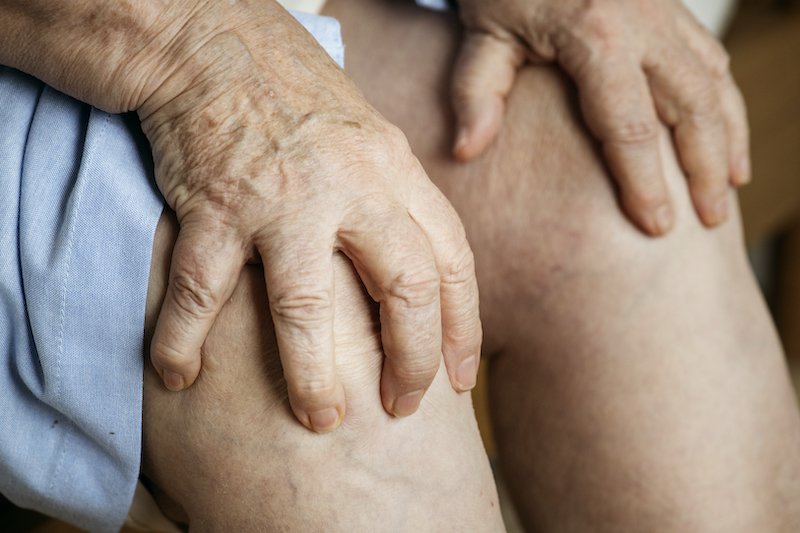While a failed total knee arthroplasty is uncommon, it can be a source of considerable pain and debilitation when it occurs. This article will explore the reasons behind most failed total knee replacements and what can be done to treat them.
What is a total knee arthroplasty?
In a healthy knee joint, the thigh bone, shin bone, and kneecap all meet and are separated by a layer of articular cartilage that cushions and protects the joint, allowing for smooth knee movements. Over time, this cartilage can begin to wear away, meaning the bones begin to rub painfully against each other. This condition is called arthritis and can arise because of age, autoimmune disease, or serious injury.
To treat knee arthritis, an orthopaedic surgeon can perform a knee arthroplasty, or replacement. During this procedure, the surgeon removes the damaged joint surfaces and replaces them with metal or plastic components to create an artificial joint. This new joint restores smooth movement and normal functioning.
In some cases, though, a knee arthroplasty can fail. While failed knee replacements are uncommon, they do occasionally occur. There are a variety of reasons for a failed total knee arthroplasty, including:
Loosening implant
During a knee replacement surgery, the new joint components are securely fixated to the bone. Over time, the implant can begin to loosen due to frequent high-impact activities, a heavier body weight, or wearing down of the implant material. This loosening can cause significant pain and a feeling of instability in the knee.
Infection
With all surgeries, there is a risk of infection. With a knee replacement, though, an infection can seriously affect the integrity of the new joint. Bacteria can grow along the new joint surfaces, leading to pain, inflammation, and drainage in the knee joint.
General instability in the knee joint
After a knee replacement, there may be a feeling of instability in the knee joint or that it may give out while standing or moving. This instability can be caused by an improperly secured implant or by the displacement of surrounding soft tissue during the surgery that prevent their normal supportive function.
Knee stiffness
After a knee replacement, some people develop an excessive build-up of scar tissue surrounding the knee joint. This build-up can create a feeling of stiffness that prevents normal knee movement and continues to interfere with daily activities.
If you’re suffering from any of the symptoms outlined above, consult an orthopaedic specialist for an evaluation to determine if you might have undergone a failed total knee arthroplasty.
How can a failed total knee arthroplasty be treated?
While a failed total knee arthroplasty can cause considerable pain and discomfort, revision total knee replacement is a common procedure to repair any damage from a failed knee replacement.
The nature of a revision knee replacement varies significantly based on the individual case of the patient. In the case of a loosening implant, an orthopaedic surgeon may need to secure the initial implant with pins, screws, or plates or may choose to completely replace the entire joint if the implant has suffered too much wear.
If there has been an infection, a surgeon will likely drain the site of the infection and may need to completely replace the artificial joint components if they have been damaged by the infection.
Since revision surgery is often more complex than an original knee replacement, the surgery time is longer and requires more orthopaedic expertise and experience. Luckily, revision surgery is often an effective treatment for a failed knee replacement and helps reduce pain, stiffness, and swelling, restoring mobility.
Treating a failed total knee arthroplasty at Midwest Orthopaedic Consultants
At Midwest Orthopaedic Consultants, we are prepared to evaluate even the most challenging cases. We understand the pain and frustration of a failed knee replacement and are ready to work hard to get you back on your feet again. Our team of experienced orthopaedic specialists and surgeons are equipped to start evaluating your course of treatment right away.
Book an appointment with us today!
Only a doctor can tell you if you have this ailment. This is for informational purposes and should not be used in lieu of a doctor’s opinion.


